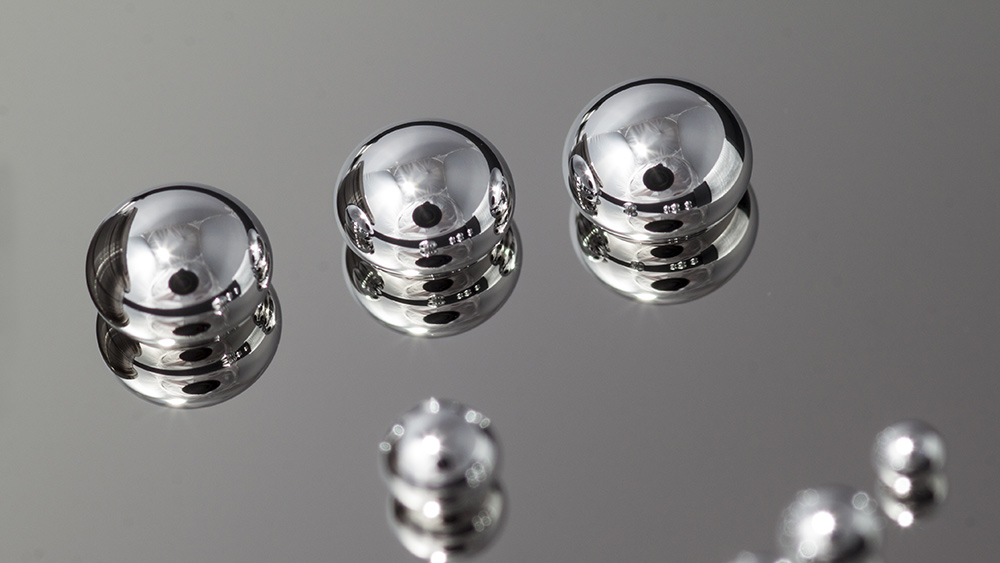
Globalists are campaigning for the widespread adoption of insect-based diets to "save the planet."
The World Economic Forum (WEF), an international organization composed of the world's rich, released a promotional video on Jan. 21 hailing insects as the future of Western diets. The video noted that insects are more sustainable to produce than other protein sources.
"Insects are forecast to make up more of our protein consumption in the future," the clip claimed.
The video also stated that insects are currently used for pet foods while around two billion people in Asia and Africa regularly munch on bugs such as scorpions.
But Europeans have not yet embraced these exotic foods. To encourage insect consumption, the WEF launched a food competition through its digital-crowd engagement platform, UpLink. The competition calls for "innovative, diverse sources of protein that will satisfy tomorrow's consumers." The organization stressed the importance of a green protein source as the global population is forecast to hit nearly 10 billion.
However, many people doubt that the WEF is advocating for the better.
Globalists advocate for insect diet so they can eat meat
The video was flooded with comments criticizing the organization. One person wrote on Twitter, "The elites will continue to eat steak and pork but the lower classes will be forced to eat bugs. Evil."
"So, your objective is to degrade people to the level where they have to eat this crap," said another.
One person pointed out that Africans and Asians are forced to eat bugs because they come from "very poor countries" with incompetent governments. "I [listened] to a defector talk about life in North Korea who said their only source of protein was grasshoppers while the elite dine on steak," the comment read.
Many people previously called out the WEF for the irony of its advocacies. The organization has been asking the public to be mindful of their carbon emissions. Yet every year, its 1,000-plus members travel via private jets to Davos in Switzerland. (Related: BASED: University professor placed on leave after exposing 'satanic, globalist elite' in explosive letter.)
Air travel is a major contributor to air pollution. A single-passenger jet traveling from New York to Zurich and back emits nearly eight tons of carbon dioxide. By comparison, a typical passenger vehicle emits around five tons per year.
In 2018, nearly 1,500 jets were estimated to have crowded Davos for the WEF Annual Meeting. Industry insiders said that the global elite was opting for bigger, more expensive aircraft.
"There appears to be a trend towards larger aircraft, with expensive heavy jets the aircraft of choice, with Gulfstream GVs and Global Expresses both being used more than 100 times each last year," Andy Christie, director at private jet provider Air Charter Service, told the Guardian in 2018.
European Union approves mealworms despite health dangers
The video came out after the European Food Safety Authority (EFSA), the European Union's food regulatory board, authorized the sale of bugs for human consumption.
Early this month, EFSA approved an application by Micronutris, the first European company that mainly produces insects as humans foods, to sell dried yellow mealworms after deeming them safe for humans. The bugs are the larval form of beetles.
But the board warned that mealworms can trigger reactions in people with shellfish and dust mite allergy and needs to be boiled first to kill pathogens. It also stated that as long as the mealworms are starved for a day before being killed, they should be safe for people to eat. (Related: Academics are trying to "normalize" eating insects by baking biscuits out of ground insect powder.)
The EFSA's decision is seen as a pivotal step toward gaining widespread acceptance of bugs for human consumption. Analysts at British bank Barclays estimated that the global insect protein market may be worth about $8 billion by 2030 in terms of sales, up from less than $1 billion now.
"This first EFSA risk-assessment of an insect as novel food can pave the way for the first EU-wide approval," said Ermolaos Ververis, an EFSA scientific officer.
Insect larvae are also used for chicken and fish feed and as fertilizer. Many European food companies are also slowly incorporating bugs into humans foods. A few years ago, a Norwegian supermarket launched worm burgers, but later scrapped the product due to low demand.
Learn more about the evil globalist agenda at DeepState.news.
Sources include:
Please contact us for more information.




















